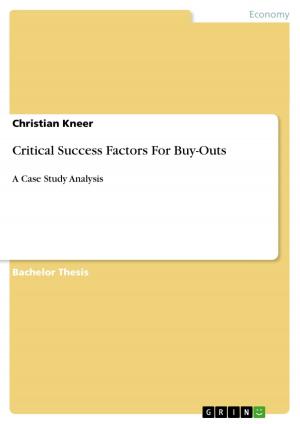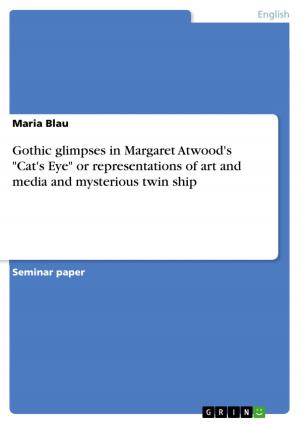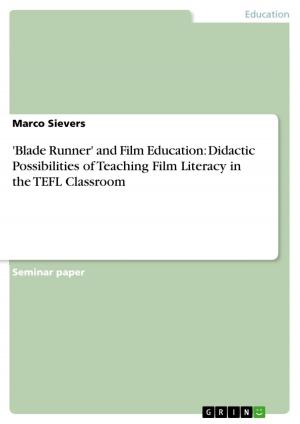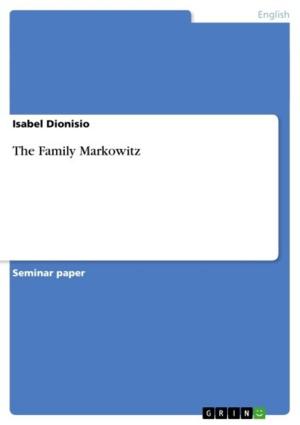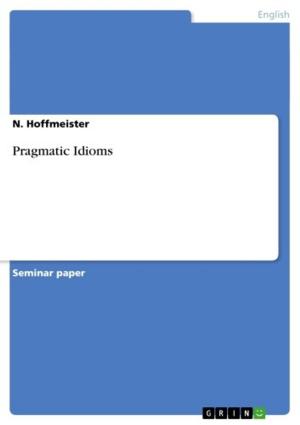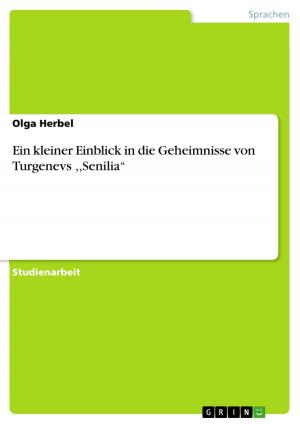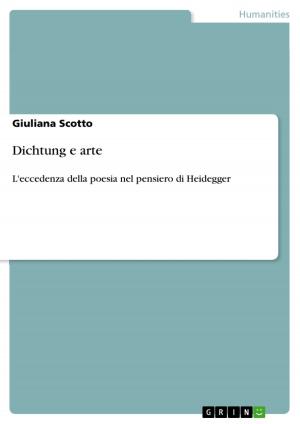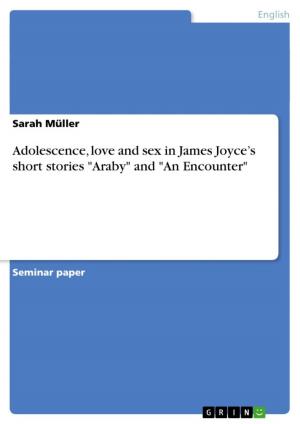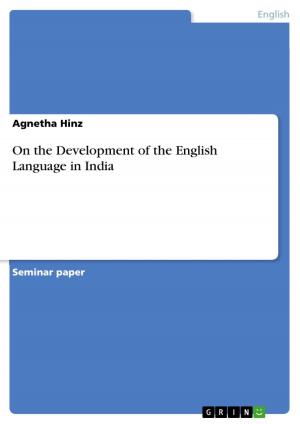The Horror Film - Analysis of 'Nosferatu' from 1922 and 1979
Fiction & Literature, Literary Theory & Criticism, British| Author: | Lisa Jensen | ISBN: | 9783656040880 |
| Publisher: | GRIN Publishing | Publication: | October 28, 2011 |
| Imprint: | GRIN Publishing | Language: | English |
| Author: | Lisa Jensen |
| ISBN: | 9783656040880 |
| Publisher: | GRIN Publishing |
| Publication: | October 28, 2011 |
| Imprint: | GRIN Publishing |
| Language: | English |
Seminar paper from the year 2010 in the subject English Language and Literature Studies - Literature, grade: 2,0, University of Hannover (Englisches Seminar), course: Film Analysis, language: English, abstract: Friedrich Wilhelm Murnau's Nosferatu - Eine Symphonie des Grauens is a horror film classic from 1922. In 1979 Werner Herzog produced a movie called Nosferatu - Phantom der Nacht, in which he used Murnau's direction ideas. In this paper, I first analyse and compare the influence of colours and lighting on the atmosphere in both movies. Thereafter, I point out the differences in atmosphere between the silent movie with background music and the film with diegetic sounds. Finally, I focus on some differences in cinematography and editing in order to find out how different techniques evoke different feelings in the viewer. I do all this with the intention of proving that, even though advanced filming techniques have improved the understanding of details in movies, the genre of the horror film has not profited from the developments but, in contrast, runs the risk of appearing absurd or parodic.
Seminar paper from the year 2010 in the subject English Language and Literature Studies - Literature, grade: 2,0, University of Hannover (Englisches Seminar), course: Film Analysis, language: English, abstract: Friedrich Wilhelm Murnau's Nosferatu - Eine Symphonie des Grauens is a horror film classic from 1922. In 1979 Werner Herzog produced a movie called Nosferatu - Phantom der Nacht, in which he used Murnau's direction ideas. In this paper, I first analyse and compare the influence of colours and lighting on the atmosphere in both movies. Thereafter, I point out the differences in atmosphere between the silent movie with background music and the film with diegetic sounds. Finally, I focus on some differences in cinematography and editing in order to find out how different techniques evoke different feelings in the viewer. I do all this with the intention of proving that, even though advanced filming techniques have improved the understanding of details in movies, the genre of the horror film has not profited from the developments but, in contrast, runs the risk of appearing absurd or parodic.

